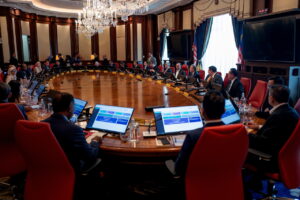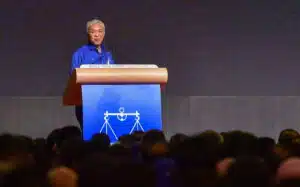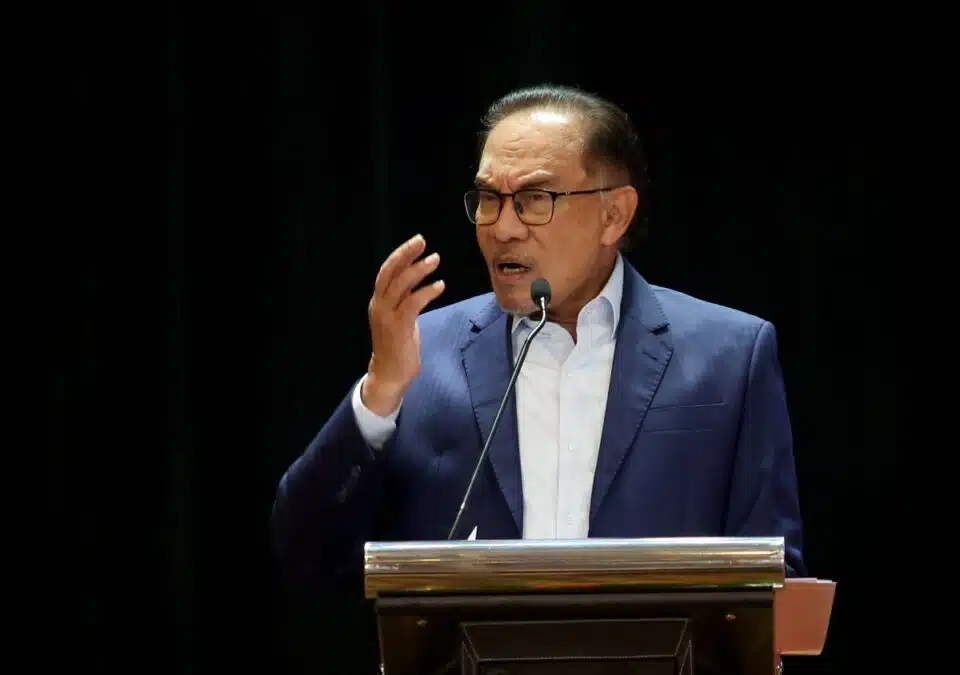By Nadirah H. Rodzi
SHAH ALAM, Aug 29 — Following his installation as the country’s 10th prime minister last November, Datuk Seri Anwar Ibrahim has continued his crusade against corruption, resulting in sleepless nights for perpetrators from both political divides.
It began with the discovery of RM300 million from questionable means in the bank accounts of opposition party Bersatu, led by former ally and premier Tan Sri Muhyiddin Yassin.
Shortly after, the Bersatu president was charged in March at the Sessions Court with four counts of abuse of power involving a total of RM232.5 million in gratification and two counts of money laundering involving RM195 million.
The Pagoh MP was the third Bersatu leader to face charges, after supreme council member Datuk Wan Saiful and Segambut division deputy chief Adam Radlan Adam Muhammad.
Sincere, fervent anti-corruption drive
Transparency International Malaysia (TIM) president Muhammad Mohan said Anwar’s sincerity in fighting corruption and pursuing a clean administration bodes well with his Unity Government.
“Anwar has repeatedly said that, to the best of his knowledge, not a single minister in his cabinet has obtained contracts or taken any bribes. He has asked all his cabinet ministers to look at the Auditor-General’s report on the findings and the gaps to be addressed,” Muhammad told Selangor Journal.

Security and political analyst Dr Noor Nirwandy Mat Noordin said Anwar’s effort to fight corruption is notable because of his consistency.
This is evident when government authorities initiated investigations into the Human Resources Ministry earlier this year over multiple allegations of graft and abuses.
“Nothing can be achieved without consistency in beliefs, determination and actions, so people need to acknowledge and support this because corruption bleeds government assets,” Noor Nirwandy said when contacted.
“The extensive investigation into the Human Resources Ministry’s migrant worker recruitment system, for example, was not a popular move, but it shows that Anwar is serious about stopping the rot.”
Malaysia depends on millions of migrant workers to staff jobs in plantations, factories, construction and service sectors.
Over the years, the migrant labour ecosystem has faced accusations of collusion among politicians, enforcement agencies, recruitment companies, labour brokers and exploitative employers, as well as forced labour and appalling living conditions.
After assuming his role as the premier, Anwar has also directed various authoritative bodies, including the Malaysian Anti-Corruption Commission (MACC), Royal Malaysian Police, Bank Negara, Inland Revenue Board and Labuan Financial Services Authority, to launch investigations into issues unveiled by the Pandora Papers.
Anwar said Malaysia is committed to initiating probes wherever possible to prevent illicit fund transfers while specifying that the focus of these inquiries will be on politicians, including former prime ministers and finance ministers, due to the potential misuse of their positions to relocate personal wealth overseas during their tenures.
Call for further reforms
But as impressive as it may seem, tangible action is needed to back up his words, said observers.
Despite being praised for implementing selective tendering to save money and reduce leakages by halting direct negotiations in awarding government projects, experts said critical reforms are still due.
These include amending the Whistleblower Protection Act to provide greater protection and advocating for MACC reforms to ensure independence, which the previous administrations had glaringly neglected.
Recommendations by security experts have included MACC reporting to a parliamentary select committee, fixing the chief commissioner’s tenure, and removing the power of the prime minister to make recommendations for the position.
Dubbed as the mother of corruption, observers said “money politics” has long been ingrained in Malaysia, which prompted the need for a Public Procurement Act.
Initial plans were announced five years ago, although there has not been any significant development on the matter since.
“The Political Funding Act is also long overdue, and the government and the opposition should sit together to reach a consensus on the draft bill and push to table this,” said Muhammad.
“When these initiatives are done, and corruption in the public sector is reduced, the Corruption Perception Index (CPI) scores will improve, which will help boost investors’ confidence and national security.
“The prime minister said he wants Malaysia to be ranked in the top 30 in the CPI within 10 years. This is doable, but the hard work must start now,” he added.
Malaysia recently saw a stream of investments from the European Union and the Middle East, which political and economic observers believe stemmed from the country’s stricter graft-busting efforts.
Likening fighting corruption to elements of communications warfare, Noor Nirwandy said it is a soft power tool to enhance a nation’s brand in the eyes of investors.
“We are boosting our image globally by being firmer in tackling power abuse and corruption. It’s not an ordinary effort. Good governance talks about national, public and wealth security,” he said.
The Zahid conundrum
One of Anwar’s biggest criticisms, however, has been his appointment of a deputy prime minister with a slew of corruption charges, which many have described as ironic, considering his graft-busting campaign.
The Pakatan Harapan chairman has consistently said he would not hesitate to get rid of ministers involved in graft to show his commitment against corruption.

In January last year, Datuk Seri Ahmad Zahid Hamidi, who is also Umno president, was ordered by the high court to enter his defence over 47 counts of money laundering, bribery and criminal breach of trust involving a foundation he had set up.
For Nusantara Academy for Strategic Research senior fellow Prof Azmi Hassan, Anwar may have felt that it is fair to appoint and keep Zahid in his cabinet as the latter’s cases are still ongoing.
“Asking him to take leave before he is found guilty would be unfair. Although it’s up to Zahid (to quit), there are political ramifications (as it could cause further instability within Umno, a party currently part of the Unity Government).
“But If Zahid is found guilty, I believe Anwar will not hesitate to drop him,” Azmi said.
Owing to that, Muhammad emphasised the importance of preserving the independence of the judiciary to avoid bias.
“Any withdrawal of charges mid-way will give an impression that there is executive interference. It is best to allow the judicial process to proceed and let the judiciary system decide,” he said.





